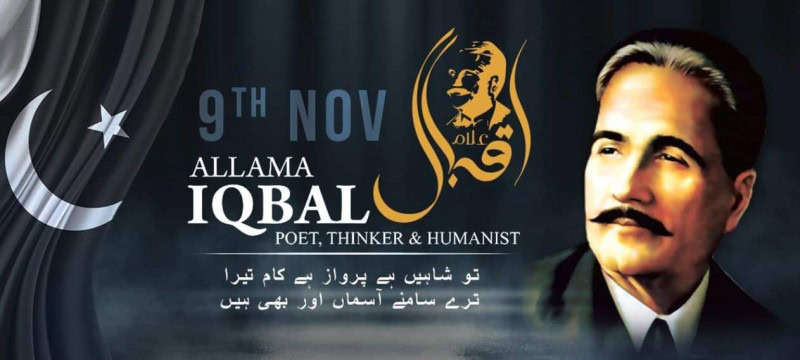ONCE upon a time, there existed a young scholar who consistently found himself tardy to his classroom.
The teacher, curious and slightly irritated, questioned, “What is the reason for your habitual lateness?”
With confidence and intelligence, the student replied, “Sir, prosperity always arrives fashionably late.”
The teacher, taken aback by the profound response, formed a high opinion of the student from that day forward. As fate would have it, the student was none other than our national poet, Allama Mohammed Iqbal.
Read more:Remembering the Father of the Nation: 75th Death Anniversary of Quaid-e-Azam Muhammad Ali Jinnah
Iqbal’s exceptional intellect and unconventional thinking set him apart as a great figure in history. Born in 1877 in Sialkot, he pursued education both in his hometown and Lahore. Further studies led him to England and Germany, culminating in a Ph.D.
His philosophical inclination and the quest for deeper understanding distinguished Iqbal as a great philosopher. Well-read and influenced by both Eastern and Western literature, Iqbal’s journey emphasizes the significance of diverse knowledge sources in shaping one’s values.
Iqbal’s wisdom is encapsulated in his encouragement for youth to aim high and strive for excellence. He urges them not to be daunted by adversity, symbolized by the metaphorical winds that propel eagles to greater heights.
Emphasizing self-reliance, Iqbal advocates belief in one’s abilities. His call to elevate oneself aligns with the belief in untapped potential. Confidence and self-respect, he suggests, pave the way for remarkable achievements.
In the pursuit of knowledge, Iqbal underscores its practical application in daily life. Knowledge, in his view, should empower individuals to comprehend reality, providing a foundation for a fulfilling existence.
Life, according to Iqbal, is a continuous process of creation, demanding each generation to innovate and address challenges independently. He also stresses the importance of nurturing one’s spiritual side, believing that a balanced focus on both material and spiritual aspects leads to a more satisfying life.
Iqbal’s literary legacy extends beyond personal development; it encompasses themes of independence, patriotism, and national spirit. His dedication to the cause of Muslim unity in the subcontinent played a crucial role in the creation of Pakistan.
Recognized as the National Poet, ‘Muffakir-e-Pakistan’ (The Thinker of Pakistan), and ‘Hakeem-ul-Ummat’ (The Sage of the Nation), Iqbal’s Urdu and Persian works convey messages of independence, selflessness, and the reconstruction of religious thoughts.
Through poetic and philosophical works such as ‘Bang-e-Dara,’ ‘Bal-e-Jibril,’ ‘Zarb-e-Kaleem,’ and others, Iqbal guides readers toward a better life, imparting virtues essential for success and happiness.





